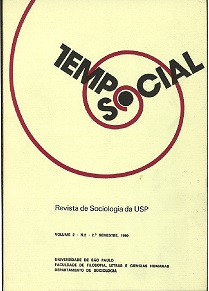The relation between civil society and State: elements for a theoretical foundation of the role of social movements in Latin America
DOI:
https://doi.org/10.1590/ts.v2i2.84801Keywords:
Social movements, Democracy, Civil society, State Latin America, Social identity, Social conflict, Social class, political organizationAbstract
This article intends to make clear the significance of social movements in the building of a real democratic society and State in Latin America. In the first part, a brief critical review of the thought of Hegel, Marx, Lenin and Gramsci, about the relation between the civil society and the State, allows us to identify where the movements are within the social dynamics. In the second part, it is shown as the Latin-American social movements work up the subordinate social segment´s identity in order to have them free to demand their democratic representation related to their interests before the State and political parties.Downloads
Download data is not yet available.
Downloads
Published
1990-07-07
Issue
Section
Articles
License
Copyright (c) 1990 Tempo Social

This work is licensed under a Creative Commons Attribution-NonCommercial 4.0 International License.
How to Cite
Restrepo, L. A. (1990). The relation between civil society and State: elements for a theoretical foundation of the role of social movements in Latin America. Tempo Social, 2(2), 61-100. https://doi.org/10.1590/ts.v2i2.84801


